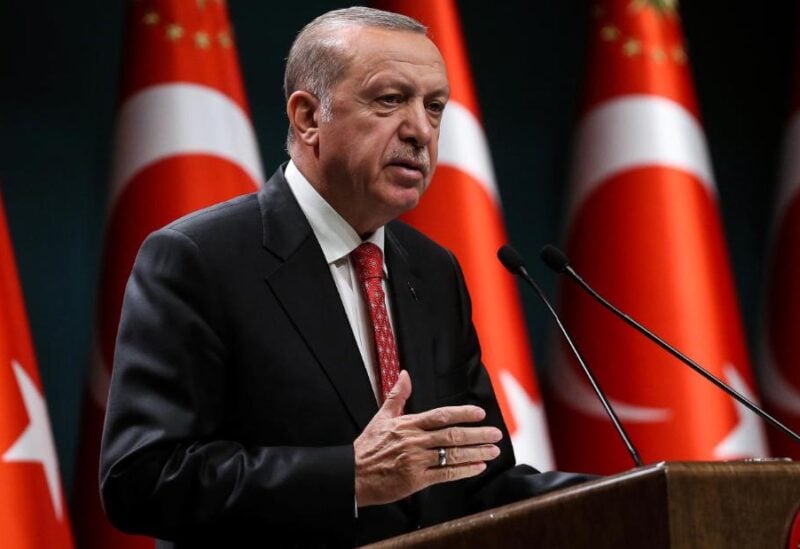
Recep Tayyip Erdogan
President Recep Tayyip Erdogan pledged on Wednesday to rein down Turkey’s skyrocketing inflation, which reached 36% last month, but experts feared it might rise much higher, putting more pressure on the damaged lira.
Of 2021, the lira lost 44 percent of its value, the worst result in Erdogan’s nearly two decades in power.
It was trading at 13.31 per dollar at 1705 GMT, up from 13.8 at the end on Tuesday. Earlier on Wednesday, it had risen as much as 4.7 percent to 13.15, its highest level in more than a week, but it was unclear why it had risen so much.
The lira has mainly stabilized in a 13.7-13.94 range since last Thursday, thanks in part to costly state interventions in the currency market and government steps that helped soothe a full-fledged crisis last month.
Erdogan claimed in parliament that Turkey was safeguarding its economy from “attacks” and had seized control of “foreign financial weapons that might disrupt the financial system.”
“The rising inflation is not in keeping with our country’s reality,” Erdogan said, adding that the government’s initiatives will soon alleviate the burden of “unjust” price increases.
Under pressure from Erdogan, who wants to promote GDP by increasing output and exports, the central bank has cut its policy rate by 500 basis points to 14 percent since September.
In a research note, Goldman Sachs predicted that annual inflation would top 40% in January, then rise to 50% and remain elevated until the end of the year, when base effects would reduce it to approximately 33%.
“The severely negative real rates and high pace of loan growth are expected to keep inflation rising and put pressure on the lira,” warned the Wall Street bank.
Despite recent market volatility, Turkey’s economy is expected to increase by 9.5 percent in 2021, according to the World Bank’s newest Global Economic Prospects report, as it recovers from the coronavirus epidemic and accompanying lockdowns.
However, the bank predicts that growth would decelerate to 2.0 percent this year and 3.0 percent in 2023. It predicted growth of 5.0 percent in 2021 and 4.5 percent in both 2022 and 2023 in its prior report in June.
Turkey’s $720 billion GDP increased 0.9 percent in 2019 and 1.8 percent in 2020, hampered by a recession brought first by a different currency crisis and then by the epidemic.
After the lira hit a record low of 18.4 per dollar in late December, Erdogan proposed a program to encourage savers to convert foreign exchange holdings, compensating depositors for any losses caused by lira weakening.
Turkey introduced corporate accounts to the system on Tuesday, which the Treasury claims has received 108 billion lira ($7.8 billion) in deposits.
Goldman Sachs predicted that Turkish officials will try “additional administrative and regulatory measures” to reduce inflation before undertaking a monetary policy U-turn.
However, Carlos de Sousa, EM debt portfolio manager at Vontobel Asset Management, believes that rate rises are unlikely in the near future.
“This is a different era. “Erdogan has finally had enough of excessive interest rates,” he remarked.